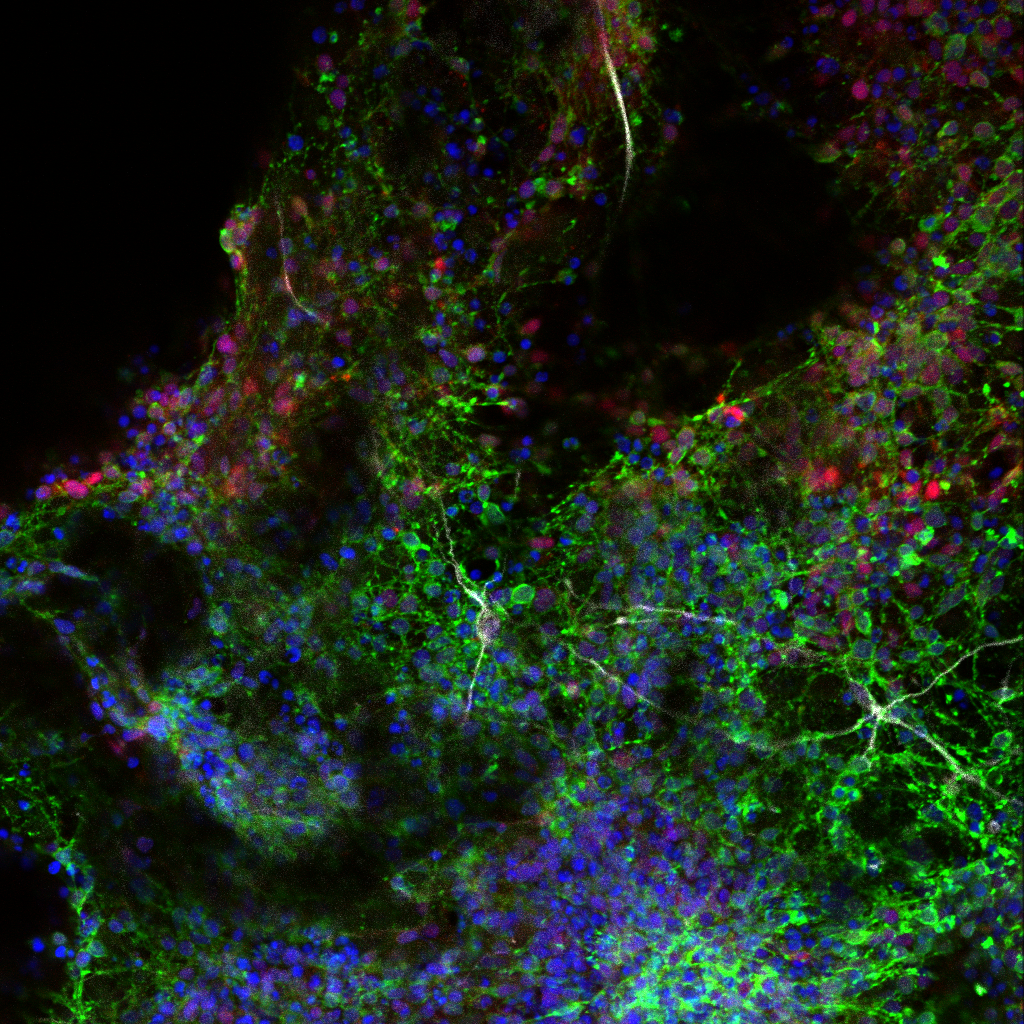Tringides, Christina
Postdoc, Sept. 2022 to July 2024
Student projects
I am always looking for motivated students from multidisciplinary backgrounds (such as materials science, electrical engineering, mechanical engineering, biomedical engineering, health sciences and technology, neuroscience) for a student project (Master thesis, semester project, bachelor thesis). My current scope of projects are in bottom-up neuroscience, specifically focused on developing physiologically-mimicked in vitro platforms to recapitulate the in vivo environment. This is for both the healthy (e.g., nerve) and diseased (e.g., cancer) nervous system.
If you are interested in a project, send me an email including your CV, an overview of your courses, and a short statement about your motivation. Please include your skills/experiences. Together, we can finalize a project that fits best with your preferences and background.

Research interests
Simplified versions of the nervous system can be recreated in vitro and allow researchers to answer questions at the cell to tissue scales. In addition to probing neural circuits, cell-matrix interactions, and organizations of cells, these platforms can be used to recapitulate the developing brain or a diseased state. By incorporating multielectrode arrays (MEAs) with in vitro models, it is possible to electrically stimulate or record neural activity and monitor changes to the neural circuits.
The mechanical properties of the brain are very different from the properties of all materials currently used for in vitro applications. We want to develop a MEA with tissue-like properties, by incorporating hydrogels which would also allow for the cells to form networks in 3D.
Biography
Christina was born and raised in Ames, Iowa USA. She obtained a Bachelor of Science in Physics, and a Bachelor of Engineering in Materials Science & Engineering from the Massachusetts Institute of Technology (MIT) in 2015. At MIT, she worked in the lab of Professor Polina Anikeeva for 3.5 years, on the fabrication of multifunctional fiber probes that could record from the brain. She then spent a year as a Fulbright Scholar at EPFL working with Professor Stephanie Lacour on the fabrication of flexible neural implants, before returning back to Boston to complete her PhD in Biophysics and Health Sciences & Technology at Harvard University with Professor David Mooney. Her thesis was entitled “Designing viscoelastic bioelectronic interfaces: from the organ to cell scales”, and she worked both on developing fully viscoelastic multielectrode surface arrays to record from the brain and the heart, and also on the development of 3D scaffolds to support and stimulate neural progenitor cells.
Christina joined LBB in September 2022, and her project involves integrating hydrogels into multielectrode arrays to enable and study 3D cultures of neuronal cells and neural co-cultures.